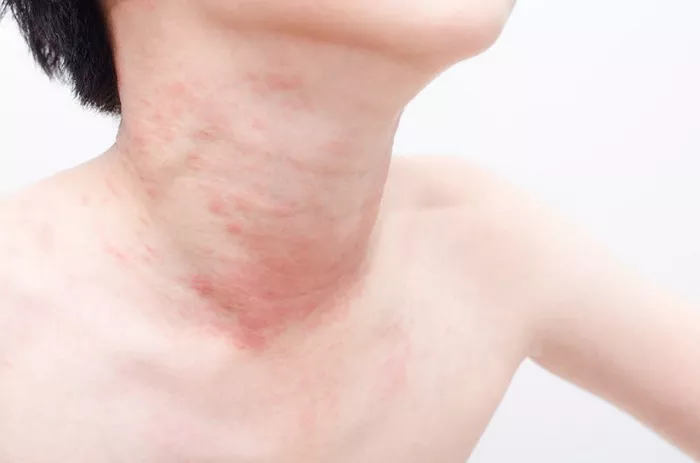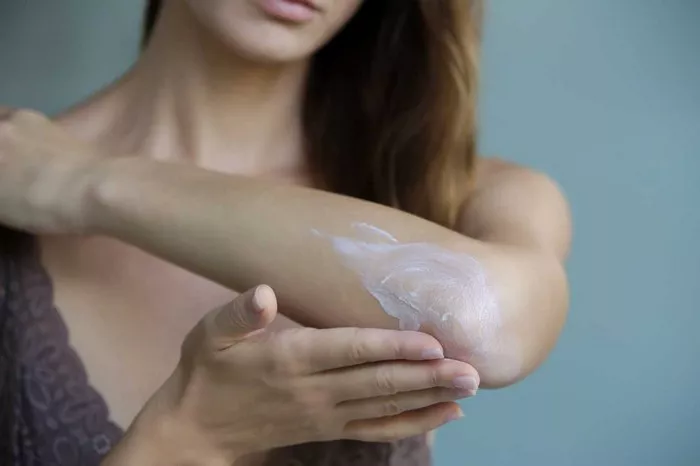Stress hives, also known as stress-induced urticaria, are raised, itchy welts that appear on the skin due to emotional stress. They can be uncomfortable and alarming, but with the right understanding and treatment, you can manage and reduce their occurrence. This article will guide you through the best treatments for stress hives, covering both immediate relief and long-term management strategies.
Understanding Stress Hives
What Are Stress Hives?
Stress hives are a skin reaction that occurs when the body releases histamines in response to stress. Histamines are chemicals involved in the immune response, causing inflammation and swelling in the skin. These hives can vary in size and shape and can appear anywhere on the body.
Symptoms of Stress Hives
Common symptoms include:
- Red, itchy welts
- Swelling
- Burning sensation
- Flushing of the skin
Hives can last from a few minutes to several hours and may change location on the body.
Triggers of Stress Hives
Understanding what triggers your stress hives is crucial for effective treatment. Common triggers include:
Emotional Stress
Life changes, work pressures, and personal issues can all contribute to emotional stress, leading to hives.
Physical Stress
Increased physical activity, illness, or fatigue can also trigger hives in some individuals.
Environmental Factors
Certain environmental factors, such as temperature changes or allergens, can exacerbate hives during stressful times.
Immediate Treatments for Stress Hives
Antihistamines
One of the first lines of treatment for stress hives is antihistamines. These medications help block the effects of histamines, reducing itching and swelling. Over-the-counter options include:
Diphenhydramine (Benadryl): Effective but may cause drowsiness.
Loratadine (Claritin): Less sedating and suitable for daytime use.
Cetirizine (Zyrtec): Another option that may cause mild drowsiness.
Always consult with a healthcare provider before starting any medication, especially if you have underlying health conditions.
Cold Compresses
Applying a cold compress to the affected area can provide immediate relief. Cold temperatures help reduce swelling and numb the itchiness. To use a cold compress:
- Soak a clean cloth in cold water or use ice wrapped in a towel.
- Apply it to the hives for 10-15 minutes.
- Repeat as needed.
Oatmeal Baths
An oatmeal bath can soothe inflamed skin. Colloidal oatmeal is particularly effective due to its anti-inflammatory properties. To prepare:
- Fill a bathtub with lukewarm water.
- Add 1-2 cups of colloidal oatmeal.
- Soak for 15-20 minutes.
This can help reduce itching and calm the skin.
Long-Term Management Strategies
Stress Management Techniques
Since stress is a major trigger for hives, managing stress is key. Consider the following techniques:
Mindfulness and Meditation: Practicing mindfulness and meditation can help reduce stress levels. These techniques encourage relaxation and focus on the present moment. Apps like Headspace or Calm offer guided sessions for beginners.
Deep Breathing Exercises
Deep breathing exercises can help lower stress. Try this simple technique:
- Sit comfortably and close your eyes.
- Inhale deeply through your nose for a count of four.
- Hold your breath for a count of four.
- Exhale slowly through your mouth for a count of four.
- Repeat several times.
Regular Exercise: Physical activity is a great way to relieve stress. Aim for at least 30 minutes of moderate exercise most days of the week. Activities like walking, jogging, yoga, or cycling can boost your mood and overall well-being.
Dietary Changes
Some foods may contribute to inflammation and stress. Consider these dietary changes:
Anti-Inflammatory Foods
Incorporate foods known for their anti-inflammatory properties, such as:
- Fatty fish (like salmon and mackerel)
- Leafy greens (spinach, kale)
- Nuts and seeds (walnuts, chia seeds)
- Fruits (berries, cherries)
Hydration: Staying hydrated is essential for skin health. Aim to drink at least 8 glasses of water a day. Herbal teas and clear broths can also help keep you hydrated.
Skin Care Routine: A gentle skin care routine can help prevent irritation that may worsen hives. Consider these tips:
Use Mild Soaps and Cleansers: Choose fragrance-free and hypoallergenic products to minimize irritation. Look for cleansers that are gentle and free from harsh chemicals.
Moisturize Regularly: Keeping your skin moisturized can help maintain its barrier function. Use a fragrance-free moisturizer daily, especially after bathing.
Seek Professional Help
If stress hives persist or worsen, it may be time to consult a healthcare provider. They can help determine if there is an underlying condition or recommend more advanced treatments. Possible options include:
Prescription Antihistamines: Stronger than over-the-counter options.
Corticosteroids: These can help reduce inflammation and are usually prescribed for severe cases.
Immunotherapy: For chronic hives, this treatment helps desensitize the immune response to triggers.
Allergy Testing
Sometimes, hives can be triggered by specific allergens. An allergist can perform tests to identify any food or environmental allergies that may be contributing to your symptoms.
Lifestyle Adjustments
Making certain lifestyle changes can help reduce stress and minimize the occurrence of hives.
Get Enough Sleep
Lack of sleep can exacerbate stress. Aim for 7-9 hours of quality sleep each night. Create a calming bedtime routine and maintain a regular sleep schedule.
Limit Caffeine and Alcohol
Both caffeine and alcohol can increase anxiety and worsen stress responses. Try to limit your intake, especially during stressful periods.
Connect with Others
Having a support system is vital for managing stress. Spend time with friends and family, or consider joining a support group. Sharing your experiences can provide relief and comfort.
When to Seek Medical Attention
While stress hives can often be managed at home, certain situations require immediate medical attention:
Severe Symptoms: If hives are accompanied by swelling of the face, lips, or throat, or if you have difficulty breathing, seek emergency care.
Persistent Hives: If hives last more than six weeks or continue to recur, consult a healthcare provider.
Conclusion
Stress hives can be frustrating and uncomfortable, but understanding their triggers and knowing how to manage them can make a significant difference. With a combination of immediate treatments, long-term strategies, and lifestyle adjustments, you can reduce the frequency and severity of stress hives. If you’re struggling, don’t hesitate to reach out to a healthcare professional for support and guidance. By taking proactive steps, you can improve your skin health and overall well-being.
Related topics:


























